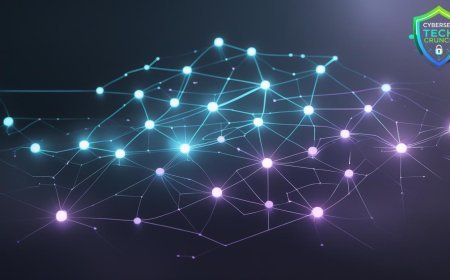Quantum Computing Threats: A Future Problem We Must Face Today

Quantum Computing Threats: A Future Problem We Must Face Today
Quantum computing is often spoken about in tones of awe and wonder. It promises to solve problems that classical computers could never crack-revolutionizing medicine, materials science, and artificial intelligence. But behind all this optimism lies a quiet, looming concern: quantum computing also poses a serious threat to modern cybersecurity.
At the heart of digital security today is encryption. Whether you're sending a private message, logging into your bank account, or transferring sensitive company data, encryption ensures that your information remains safe. Most of our current encryption systems, like RSA and ECC (Elliptic Curve Cryptography), are built on mathematical problems that are incredibly difficult for classical computers to solve. Breaking them would take thousands of years-even with the fastest supercomputers available.
But quantum computers operate on an entirely different set of rules. Harnessing the strange principles of quantum mechanics, they process information using qubits rather than bits, allowing them to perform many calculations simultaneously. With this power, a quantum computer could, in theory, solve those “impossible” mathematical problems in a matter of hours or even minutes. That means the very encryption we rely on today could become obsolete overnight once quantum machines become powerful enough.
The real challenge is that this isn’t a distant sci-fi scenario anymore. While quantum computers aren't yet capable of breaking modern encryption at scale, progress in the field is accelerating. Governments and tech companies alike are pouring resources into quantum research. And as that progress continues, the window to prepare becomes smaller.
What makes this situation especially urgent is the idea of “harvest now, decrypt later.” Some attackers are already collecting encrypted data with the intention of holding onto it until quantum technology is ready to break it. So even if quantum threats feel far off, the data being stolen today could be decrypted years from now-exposing sensitive information that we thought was safely locked away.
The cybersecurity community is not ignoring this threat. There's a global push toward what’s called post-quantum cryptography-encryption methods that can withstand the brute force of quantum computing. Standards bodies like NIST (National Institute of Standards and Technology) are already evaluating and selecting algorithms that could serve as our next line of defense in a post-quantum world.
But transitioning to these new encryption systems won't be simple. It will require updating everything from personal devices to massive corporate infrastructure. It means retraining IT teams, reengineering legacy systems, and ensuring that this quantum-resistant encryption is integrated smoothly and securely.
Facing quantum threats isn't just a technical issue-it’s a strategic one. We have a limited window to prepare, and the decisions we make today will determine how vulnerable we are tomorrow. In the end, quantum computing is both a miracle and a menace. The key will be using its power wisely, without letting it undo decades of progress in protecting our digital world.

























